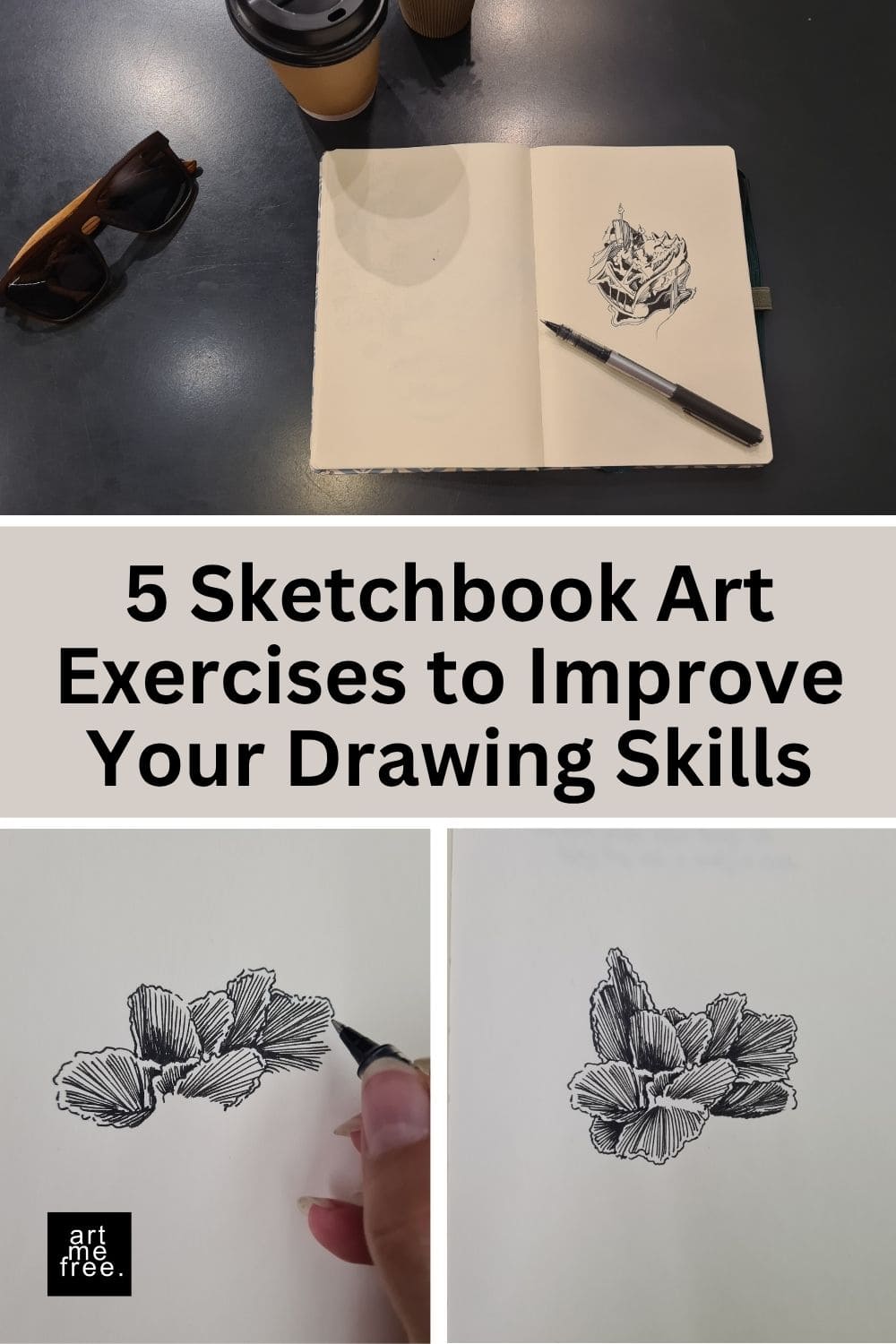
One of the most powerful sketchbook art exercises is also one of the simplest. Continuous line drawing means putting your pen on the paper and not lifting it until the drawing is complete.
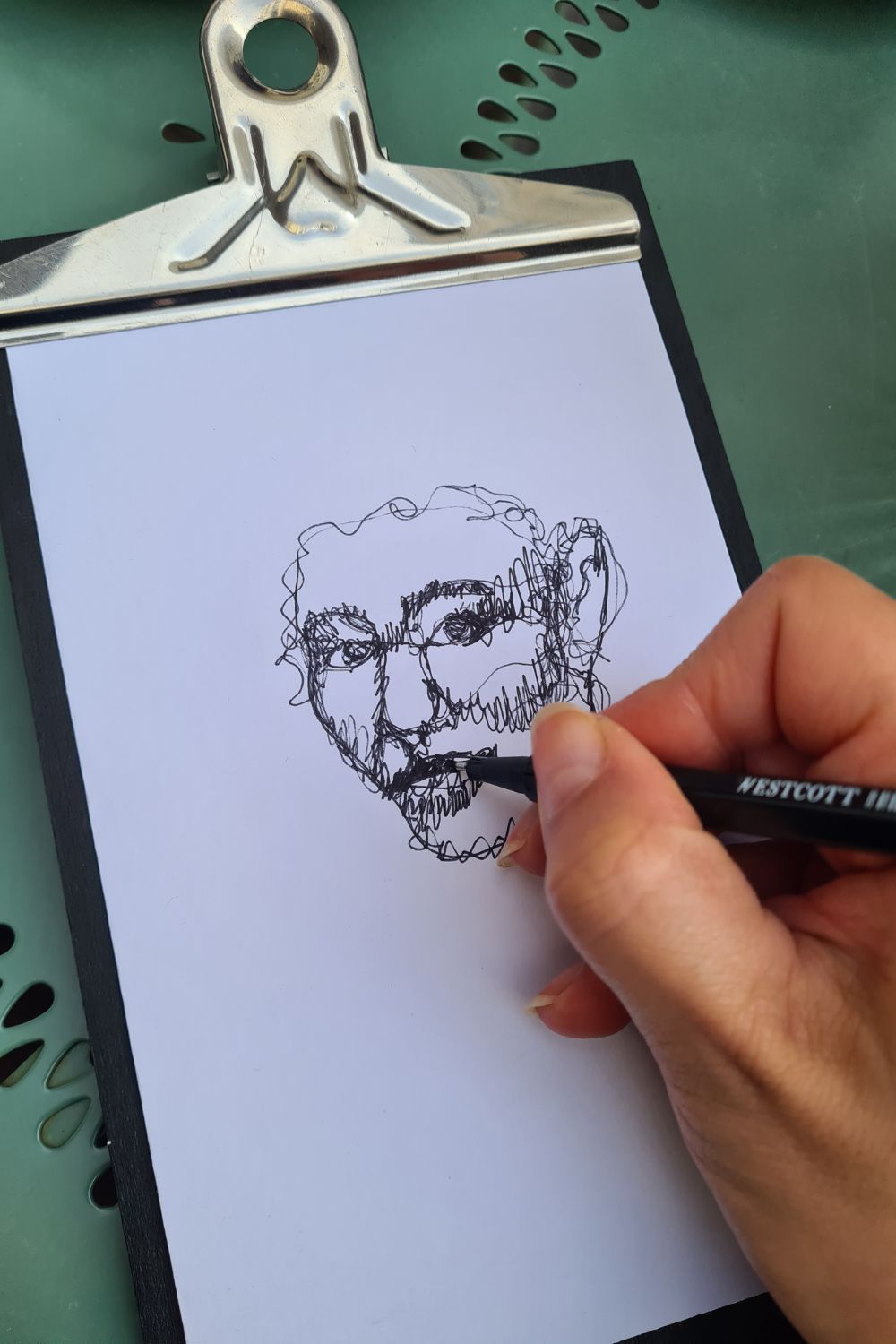
What to do:
Choose an object or shape (e.g. your hand, a cup, a plant or a portrait).
Set a timer for 2–5 minutes.
Draw the object without lifting your pen.
Don’t erase just let the lines build up.
This trains your eye and hand coordination and helps you loosen up before a drawing session. Plus, the results often have a lively, expressive quality.
This one taps directly into the artmefree style. Drawing abstract pattern doodles is both relaxing and creatively challenging. It’s about building visual structures without a set plan.



Try this:
Start with a few random shapes or marks.
Connect them with lines, textures, or repetitive patterns.
Mix geometric and organic forms.
Let the structure grow in any direction.
This kind of doodling sharpens your eye for balance, repetition, and contrast. It’s also a fantastic way to develop your unique visual language.
Doodling is a fun and relaxing way to explore creativity, and now you can start your journey with my free workbook!
The Art of Doodling is a printable workbook designed to help you discover and improve your art skills, no experience needed. At artmefree, it’s all about embracing creativity in a simple, enjoyable way, whether you’re just starting out or looking for fresh inspiration.
16 pages packed with fun doodling exercises ✨
Helps improve and level up your drawing skills ✏️
Features pattern ideas and step-by-step guides 🗒️
Includes examples alongside open space to explore 🎨
Download it now and start doodling!
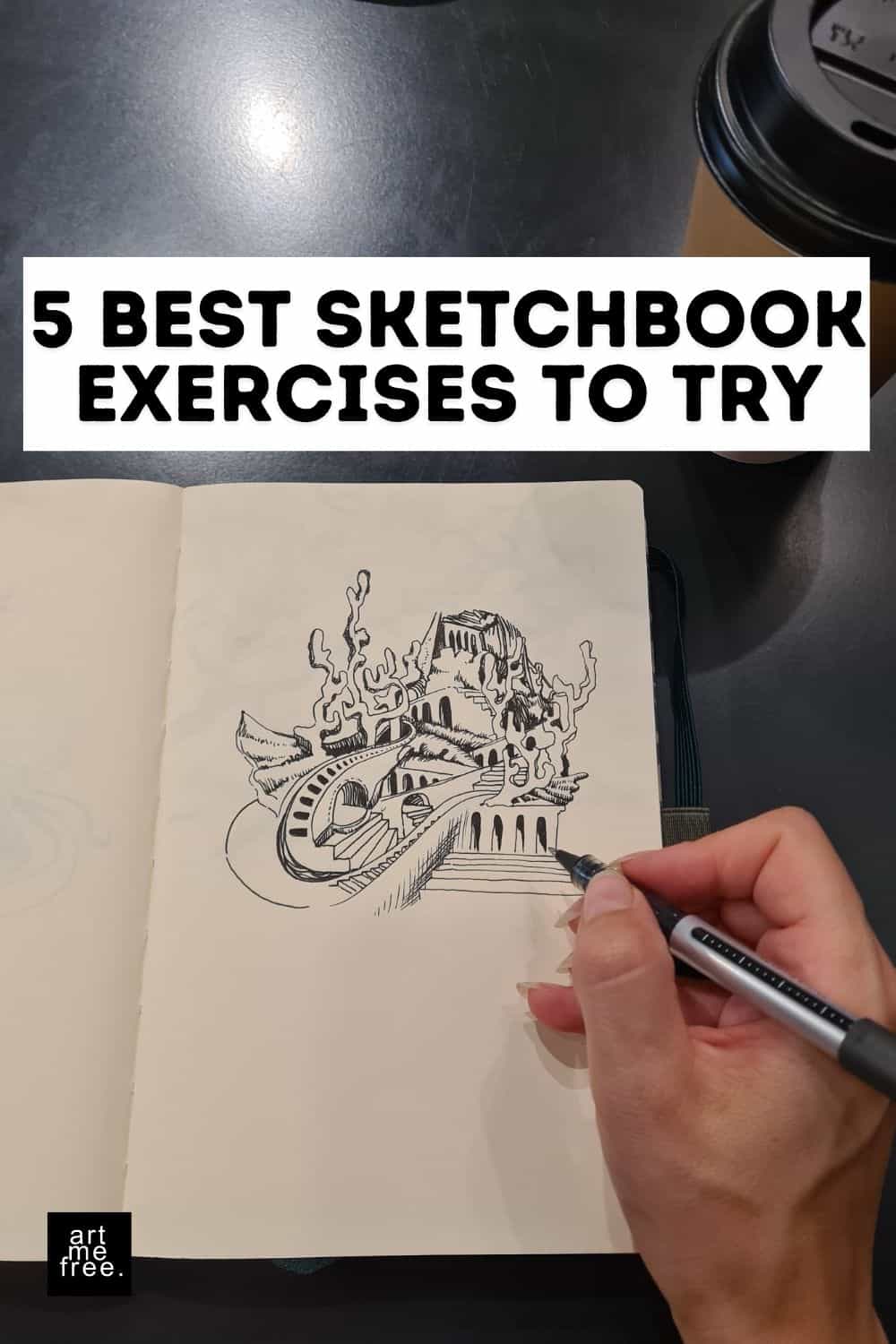
In this exercise, the goal is to turn simple shapes into something imaginative. It helps train creativity and form thinking.
How to start:
Draw 10 circles, squares, or triangles on a page.
In each one, create a different drawing using the shape as a starting point.
Turn a circle into a moon, a robot eye, or a snail shell. Let your mind play!
This sketchbook art exercise is perfect for warming up and letting go of perfectionism.
Playing with contrast helps you see value and depth better in your drawings. It also makes your sketchbook pages more dynamic.
Here’s a method to try:
Divide your page into 4 sections.
In each, use only black and white (or one color) to create high-contrast mini artworks.
Experiment with thick vs. thin lines, filled areas vs. empty spaces, tight vs. loose strokes.
This builds visual awareness and helps you make bolder design choices.
Repetition might sound boring—but in a sketchbook, it becomes meditative. This exercise is all about drawing one pattern, shape, or texture over and over.
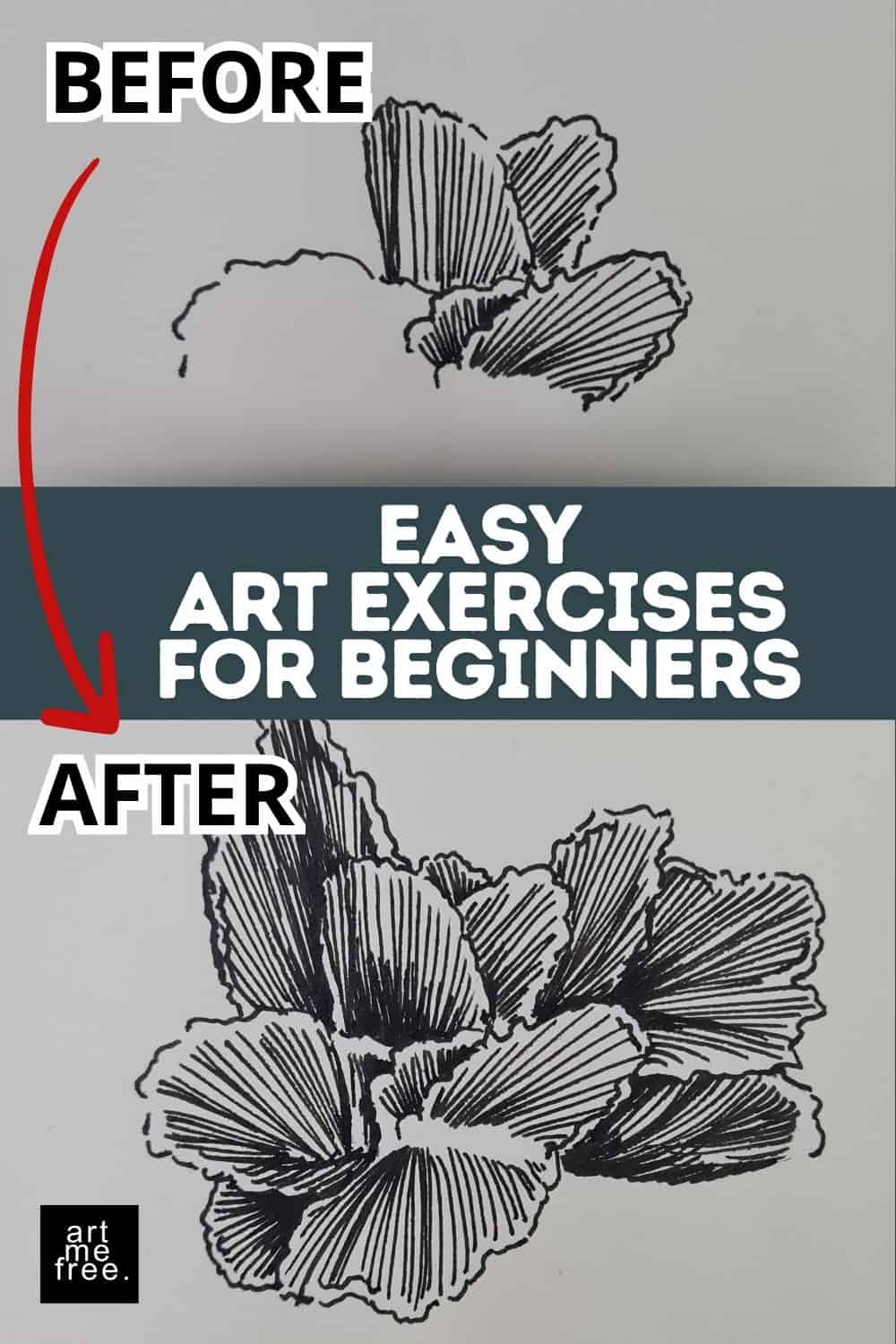
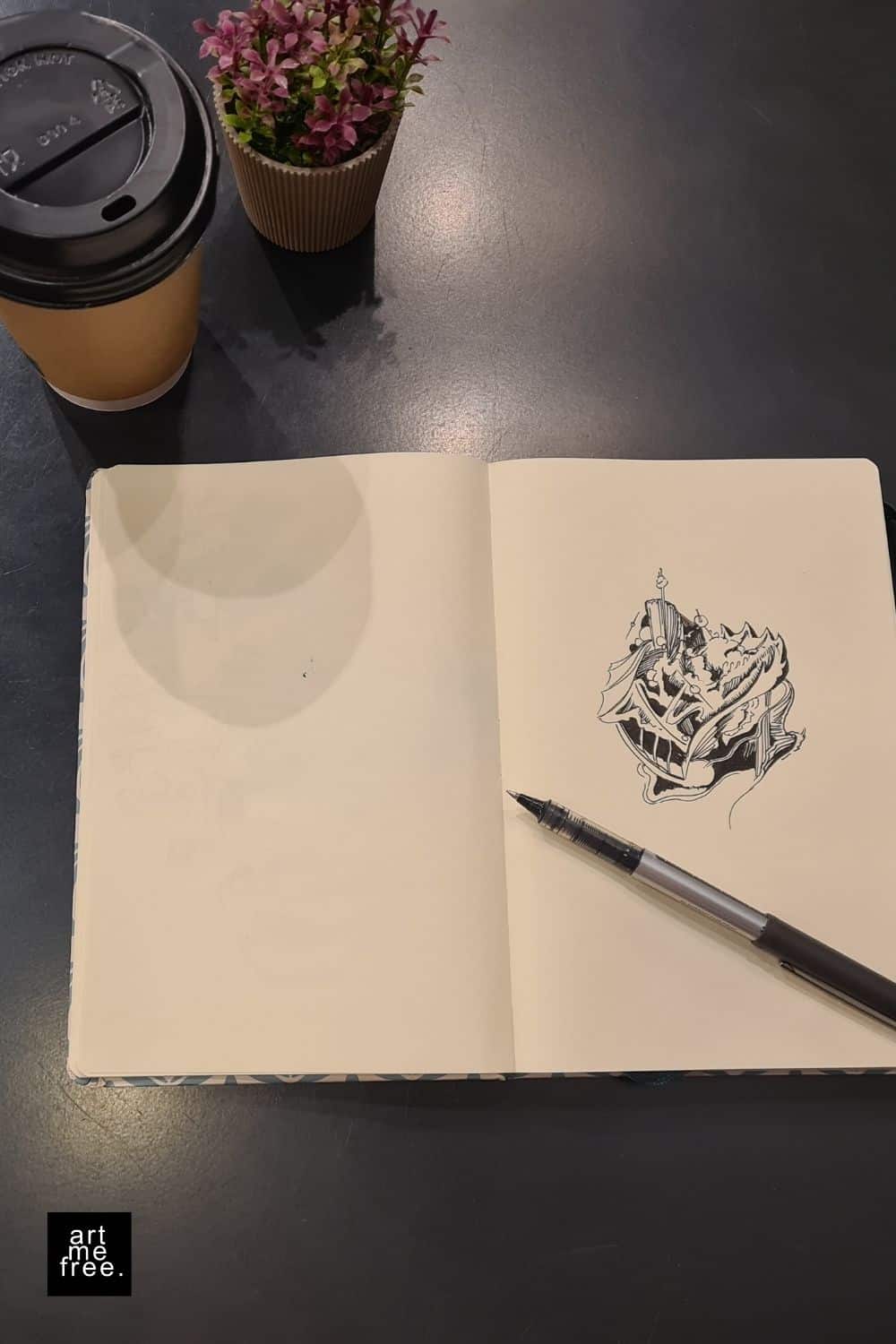
To begin:
Pick a simple element (e.g. lines, dots, swirls, leaf shapes).
Fill an entire page using only that.
Focus on the motion of your hand and how the pattern evolves naturally.
This is a fantastic practice for slowing down and connecting to your drawing rhythm. You’ll also build discipline and precision.
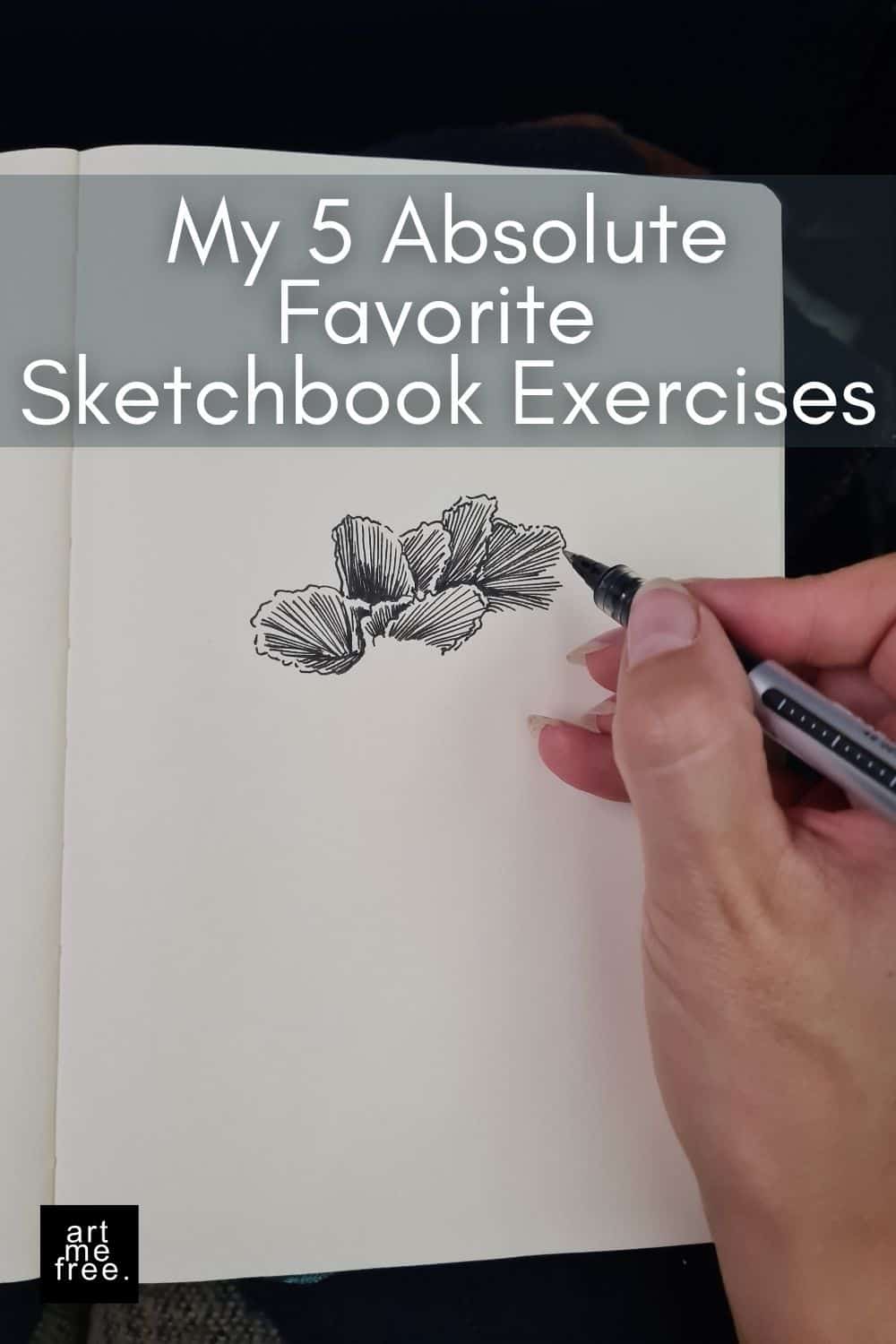
These sketchbook art exercises are not about getting perfect results. They’re about play, exploration, and developing confidence. They help improve your line work, composition skills, creative thinking, and artistic intuition.
Each drawing session adds up, no matter how small.
All the art pieces on artmefree were created in a sketchbook just like this. Most started without a clear plan and grew from simple shapes, textures, and patterns. The creative process is part curiosity, part emotion, and part experimentation.
To get even more guided practice, check out the free artmefree doodling workbook, which walks through many of these ideas step-by-step.
Save this post for your next drawing session, and if it helped you, don’t forget to:
Pin it to your favorite Pinterest board
Visit the artmefree shop
Check out the full gallery of artworks
To provide you with an optimal experience, we use technologies such as cookies to store and/or access device information. If you consent to these technologies, we may process data such as browsing behavior or unique IDs on this website. If you do not give or withdraw your consent, certain features and functions may be impaired.